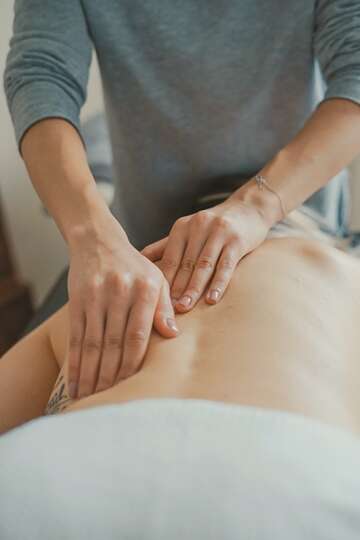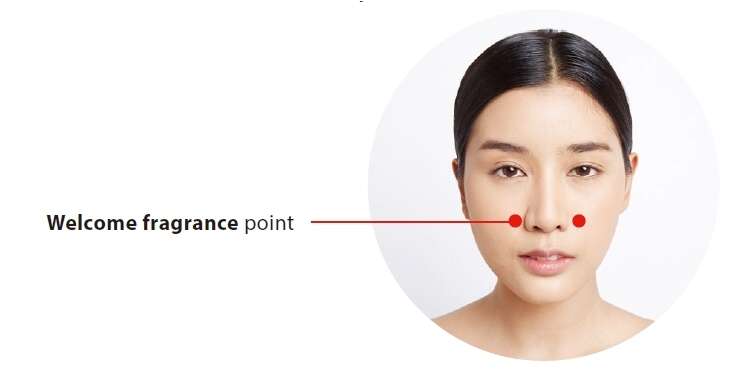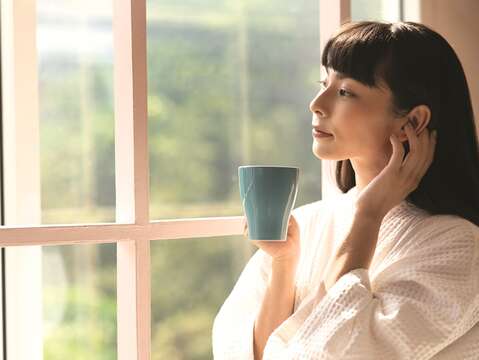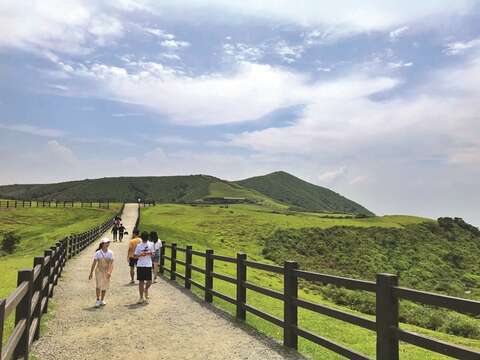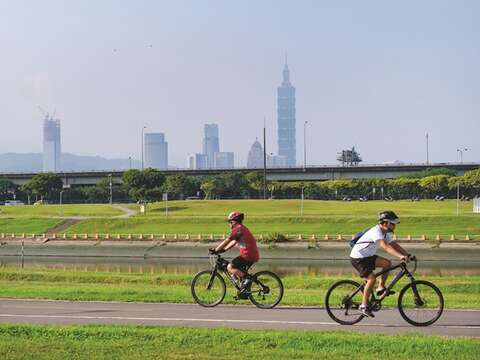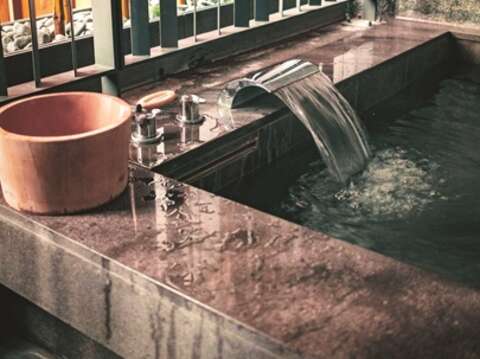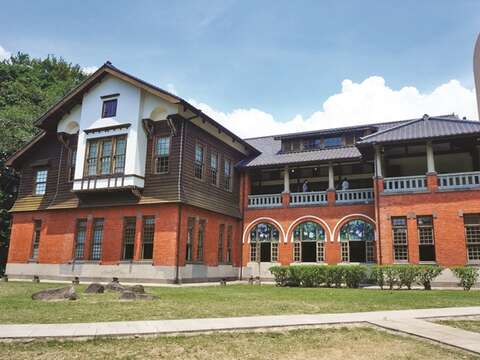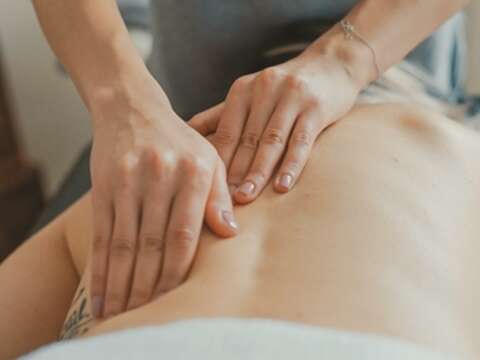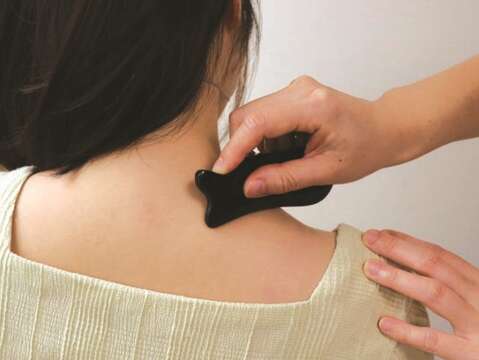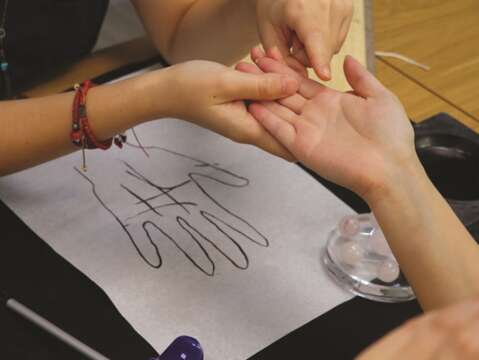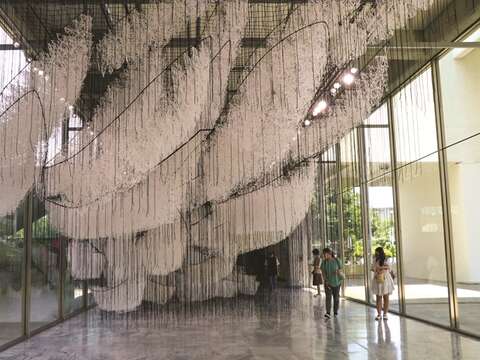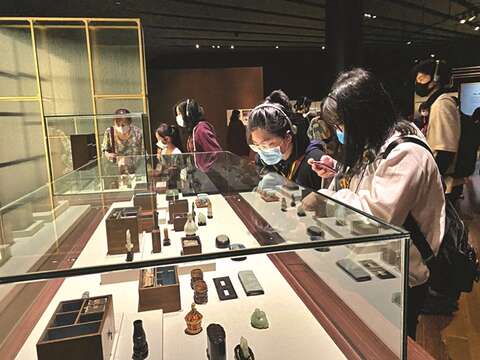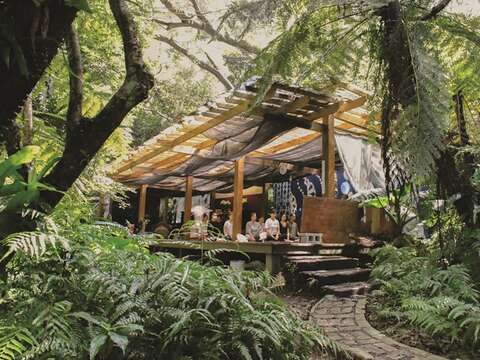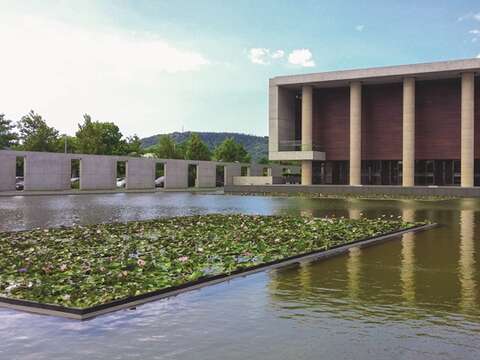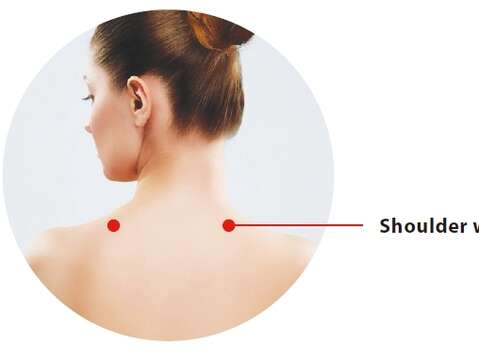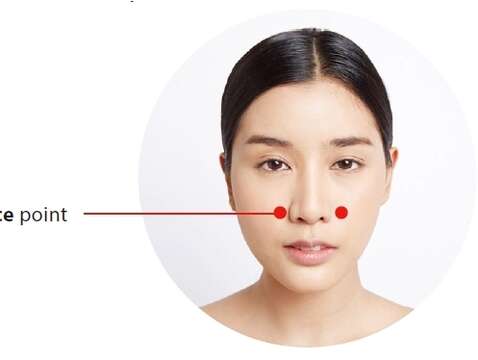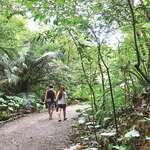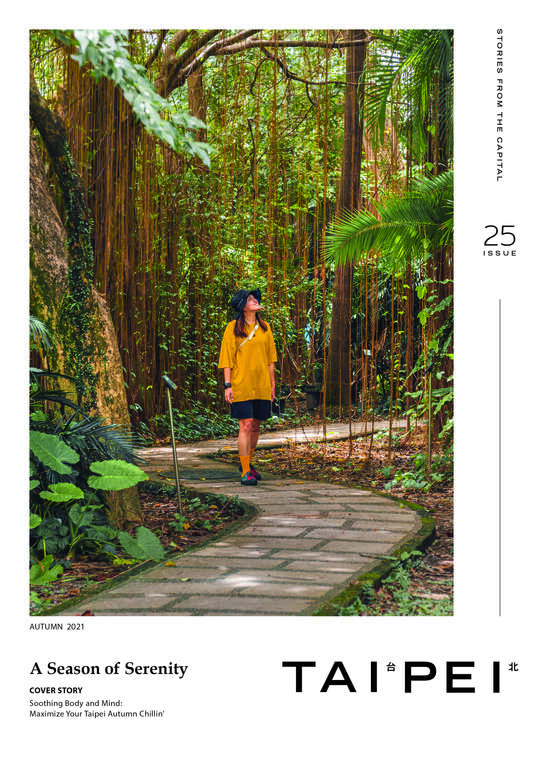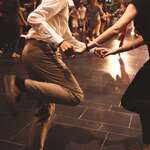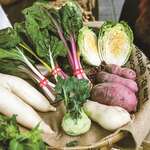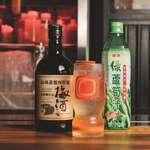Post date:2021-09-11
1231
TAIPEI #25 (2021 Autumn)
Soothing Body and Mind:
Maximize Your Taipei Autumn Chillin’
Author Rick Charette
Photographer xFrame, Taiwan Scene, Yenyi Lin, Remi Thorel, Toa Heftiba, jessiej, Yenping Yang, Liang Shuyi, Freepik
You'll probably agree that the global present is not the most relaxing of times, especially in metropolises like Taipei where the busyness of the city's living requires periodic recharging. Good ideas on how to go about refreshing body and soul are therefore invaluable under such circumstances.
TAIPEI magazine at your service! We aim to please. The hustle and bustle of modern big-city life, whether as residents or visitors, quickly saps your batteries. As summer turns into autumn in Taipei, welcome cooling air is arriving, and we present you with a soothing, soul-warming potpourri of pleasures you can immerse yourself in both inside and outside your Taipei place of abode to regenerate.
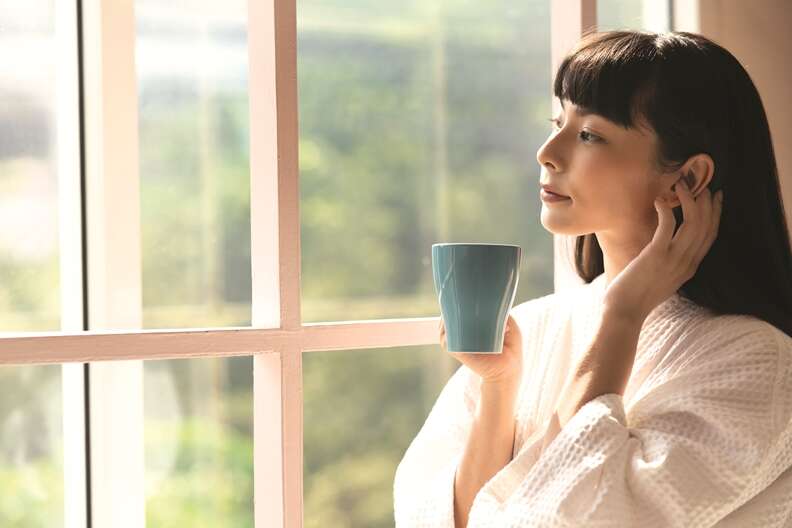
To relax your body, why not try a primer on local biking and hiking, hot-spring and at-home mineral bathing, or both professional and DIY massage? If you need a peaceful moment for your mind and soul, have a go at "spiritual consulting" — i.e., traditional Chinese fortune-telling — with helpful information on online services, art admiration, and meditation. All of these are of great comfort to both physical and mental health.
Naturally, a well-tailored personalized combination of as many as possible of the above pursuits you find most appealing is your best quick-travel path to health and bliss. What shall it be for you?
Let's get started.
Relaxing Your Body
Working Out
Taipei sits in the very flat, just-above-sea-level Taipei Basin, crisscrossed by rivers, with countless hours of breezy stress-releasing biking available along its riverside paths. The basin is mountain-ringed, where you can enjoy soothing views throughout Taipei's urban core, and its public-transport system is so convenient that you can be at the trailhead of most of its web of attractive mountain trails within an hour or so.
The riverside-park bike system delivers you all along the city's major waterways, in a giant easy-grade loop. If you do not have a bike at hand, don't worry, there are vetted bike-rental stations set up along the bikeways, with rentals very inexpensive to encourage healthy exercise, and you can rent a bike in one spot and drop it off at another. The riverside parks immerse you in an environment of sweeping vistas hard to find elsewhere in the city's core, save in spots such as the grounds of Chiang Kai-shek Memorial Hall (中正紀念堂) or high up in soaring buildings such as Taipei 101, and as you calmly pedal along getting healthy exercise, you'll feel a sense of peace and serenity.
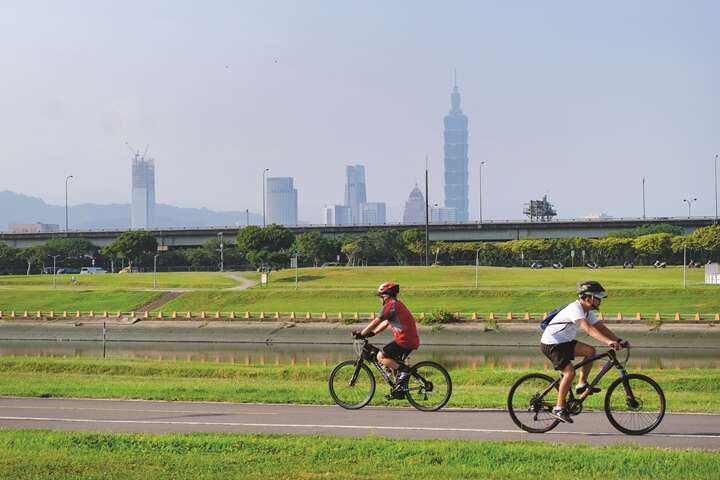
Pleasant stress-releasing hikes also await everywhere. Among the most popular are the interconnected trails of the Four Beasts Mountains (四獸山), near Taipei 101, the trails of the Taipei Tea Promotion Center for Tieguanyin Tea and Baozhong Tea (台北市鐵觀音包種茶研發推廣中心) area, reached via the Taipei Metro and interconnected Maokong Gondola (貓空纜車), and the high-mountain trails of Yangmingshan National Park (陽明山國家公園), reached by bus in about an hour from downtown. Placing yourself in this world of green, busily rich with birds, insects and small-animal life, not only makes life's little woes fade away, but provides natural nourishment for the body and quiets the soul as well.
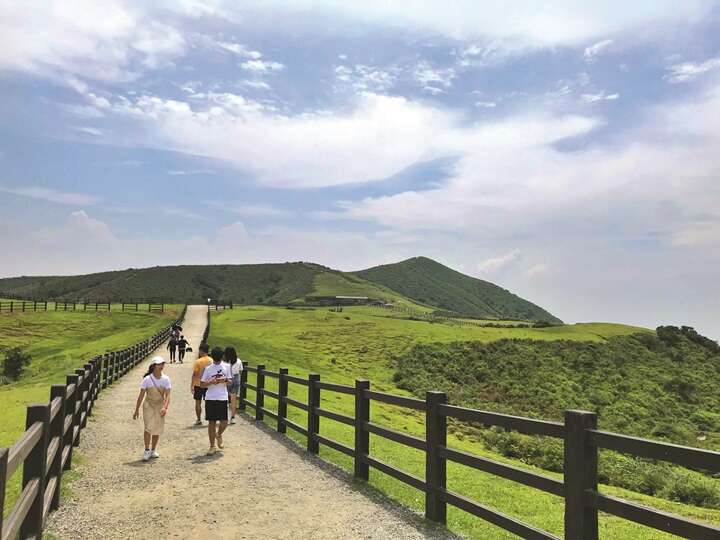
Salving Mineral Baths
The mighty Yangmingshan (陽明山, Mt. Yangming) massif looks down on central Taipei from the north. The massif is the result of ancient geo-volcanic activities — don't worry, all have long been quiet on the northern front — leaving behind a modern-day treasure-trove of fumaroles, sulfur pits...and hot springs!
The beloved Beitou (北投) hot-spring resort area fills up, and spills out of, a narrow valley at the massif's base in Taipei's northwest. MRT Xinbeitou Station (捷運新北投站) stands right outside the valley's mouth. During Taiwan's Japanese colonial era (1895-1945), the Japanese established this as a refined hot-spring destination. You can explore the area's history at the Beitou Hot Spring Museum (北投溫泉博物館), housed in what was Taiwan's first public bathhouse, built in 1913.
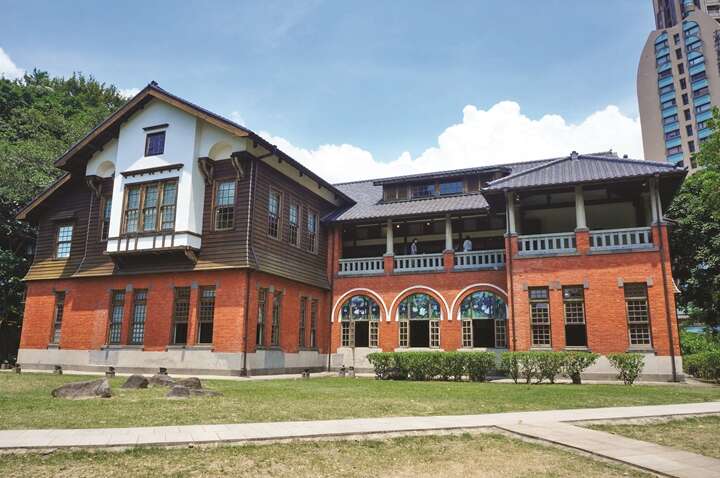
Beitou's green- and white-sulfur waters are rich with mildly radioactive Hokutolite, or Beitou Stone (北投石), the world's only mineral named after a place in Taiwan. It is extremely rare and deeply valued by soaker aficionados. Beitou's waters are particularly helpful, it's said, in relieving muscle ache, arthritis, and nerve pain, and promoting metabolism.

Though the area is rich with both public and private hot-spring bathing facilities, there is also a fine way to experience the joys of mineral-spring bathing without leaving your own abode. The bath powders produced by Beitou's Dafang White Powder Factory (大芳白粉廠), founded in 1956, are 100% all-natural, made with precious local white-sulfur hot-spring minerals.
Pampering you with an even wider array of choices is another local enterprise, Hotspring Flower (湯花作), opened in 2016. Named after the crystals of minerals found in hot spring waters, "tanghua (湯花, hot spring flower)," its items are sold in numerous locations in and around the Beitou hot-spring area and elsewhere in the city, including a shop at the tourist destination of Thermal Valley (地熱谷) and the open-air bazaar at the Xinbeitou Historic Station (新北投車站). Its lineup includes natural sulfur crystals, handmade mineral- bath soaps and powders, creative daily necessities, and more.
Massage
The foundation of the myriad benefits of traditional massage is enhanced blood circulation. Taipei, as many would proudly say "a city that never sleeps," takes care of the health-enhancement needs of its residents and visitors through all the sunlit and moonlit hours with its many professional licensed 24-hour massage centers, providing head-to-toe service, including hand and foot care services. In addition, practicing easy massages at home can also be a nice way to recharge yourself after a long, busy day.
Two of the most popular massage forms are gua sha (刮痧) and shiatsu. Gua sha, "scraping" or "spooning," is a traditional Chinese folk therapy which involves scraping of the skin with a smooth-edged instrument to stimulate soft-tissue circulation, increasing blood flow. Shiatsu, or "finger pressure," is a massage technique from Japan. This therapeutic bodywork involves kneading, pressing, tapping, and stretching, which helps ease muscle soreness instantly.
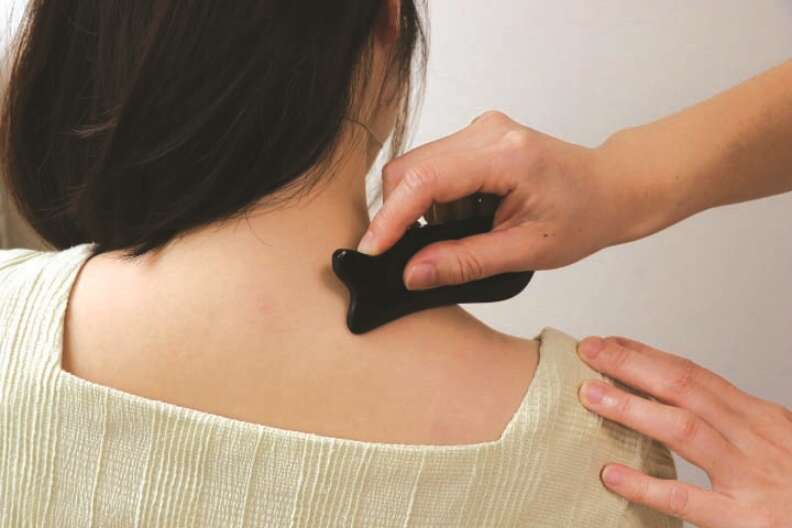
With a little training and practice, you can find proper acupoints and relieve pain and stress in different parts of your body with self-massage. For example, to relax the muscles from your neck down along each shoulder, you can use a thumb to massage the "shoulder well" acupoint (肩頸穴), located right atop your shoulder blade. If you suffer from stress headaches and nasal obstruction, try to gently massage the "welcome fragrance" points (迎香穴), just lateral to your nose wings, with your middle or index fingers for a minute each day. These all can help alleviate your physical discomfort.
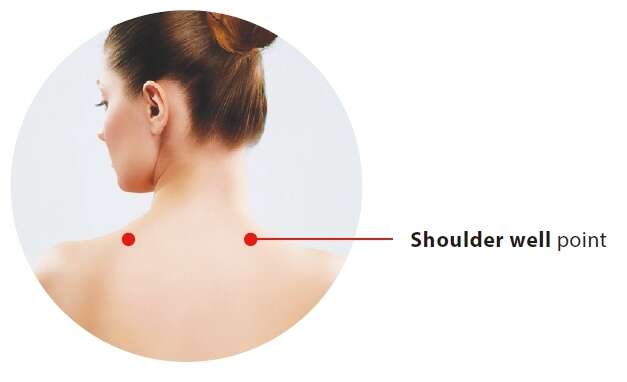
Calming Your Mind
"Spiritual Consulting" — Chinese Fortune-Telling
There are countless divination techniques practiced under the "traditional Chinese fortune-telling" umbrella. In Taipei as elsewhere in the region, fortune-tellers are generally found in and around local temples and, to a lesser degree, at night markets. Fortune-telling remains a respected and important element in local social and business culture, providing a sense of comfort for lost souls and all those seeking guidance in life.
By far the city's most popular destination for such "spiritual consulting" is the Songjiang Road Fortunetelling Street (松江路命理街), immediately outside the large, ever-busy Xingtian Temple (行天宮), which despite the "street" in the name is in fact the brightly-lit underpass for pedestrians beneath the Songjiang Road (松江路) and Minquan East Road (民權東路), filled with fortune-teller stalls. With posted signs indicating, visitors can easily find those that provide services in English or Japanese.
All the main fortune-telling techniques are practiced here — horoscopy called bazi (八字) reading, facial reading, palm reading, and fortune stick drawing or qiuqian (求籤) — along with more esoteric forms such as rice divination. With bazi or the "eight characters," your "four pillars of destiny" natal data (birth year/ month/date/hour) are matched to a complex matrix of metaphysical knowledge. Rice divination involves you taking pinches of rice grains from a cluster, placing them on a plate, and having them interpreted by a master.
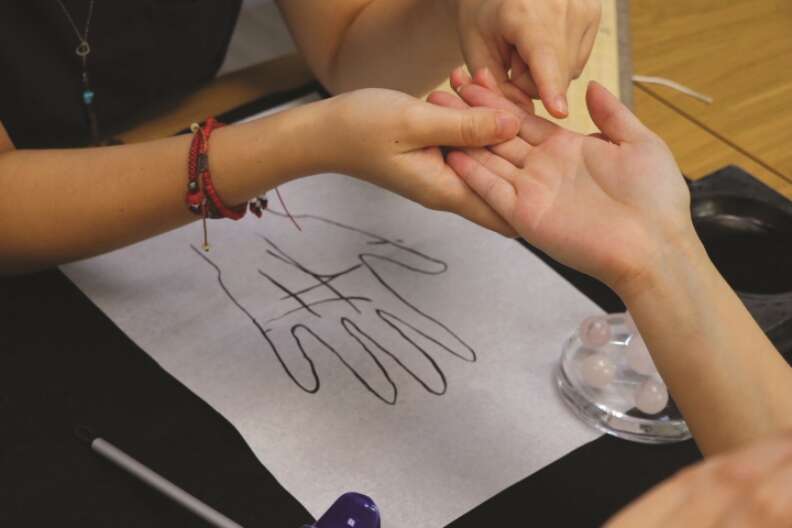
Qiuqian involves drawing fortune sticks inscribed with Chinese characters from clusters in cylinders. The fortune-teller then interprets the meaning and implications of the "god-chosen" characters for you.
An even more convenient way for either local expatriates or people visiting from overseas to experience the Taiwanese way of fortune-telling is the virtual qiuqian service provided by the City God Temple (台灣省城隍廟) of Taipei City. After reading your personal information piously, praying to the City God for life guidance sincerely, and explaining in detail what you would like to ask for, click the "start drawing fortune sticks" button to conduct the online qiuqian service. This interactive online service is no different from visiting the temple in person to seek spiritual consulting.
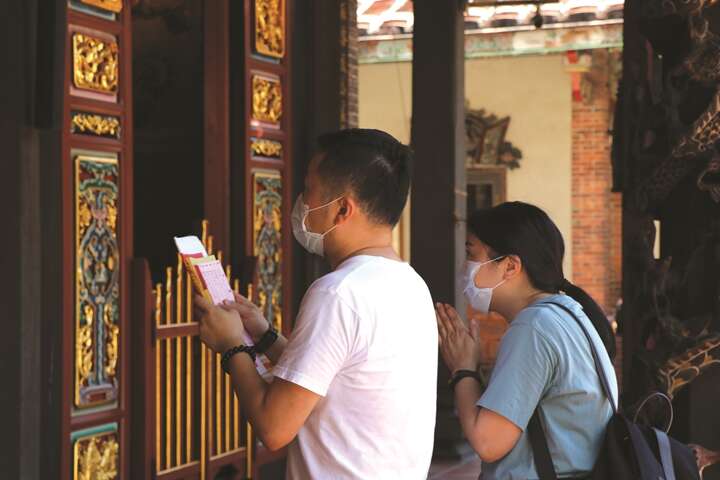
ONLINE VIRTUAL QIUQIAN SERVICE (CHINESE)
CITY GOD TEMPLE OF TAIPEI CITY
WEBSITE citygod.tw/take_a_draw.php
Art Admiration
You've probably often heard the expression "Music soothes even the savage beast." Well, art appreciation shall surely calm your mind and soul when you get to feeling a bit stressed and savage inside, and Taipei presents you with a wonderful world of artistic creation to set about appreciating, both inside brick-and-mortar museums/galleries and accessible through online virtual platforms where you can enjoy exhibitions from the comfort of your private accommodation.
The fabulous National Palace Museum (故宮博物院) is home to the world's greatest collection of priceless Chinese art treasures, most of these originally part of the Chinese imperial collection. The NPM has led the way in terms of the nation's burgeoning museum/gallery online-touring treasure vault. Walk the museum virtually, in the style of a Google Street View experience, and get up close and intimate with its most iconic gems with the ability to handle them interactively.
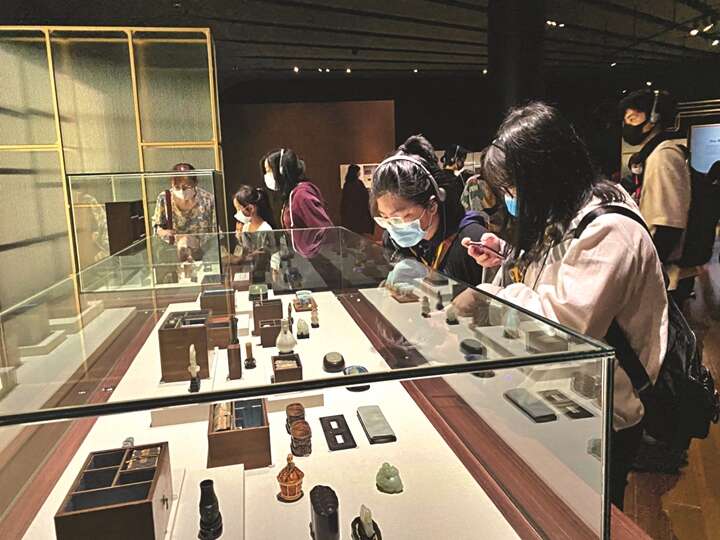
The private Tina Keng Gallery (耿畫廊), which nurtures Taiwanese modern and contemporary artists, provides online documentaries of its exhibitions. Also offering online videos of selected exhibitions is the Taipei Fine Arts Museum (台北市立美術館). This museum's collection is centered on modern works from around the globe, mostly paintings. Of special value is its collection of Taiwan works starting from the 19th century. The Museum of Contemporary Art Taipei (MoCA Taipei, 台北當代藝術館), Taiwan's first museum dedicated exclusively to contemporary art, showcases home-grown Taiwan talent. Most of its displays are on the themes of art, design, and architecture, with no standing exhibitions. The museum has recently launched VR online exhibitions, allowing for those who are far away or missed the exhibition period to enjoy the tour freely at the art gallery.
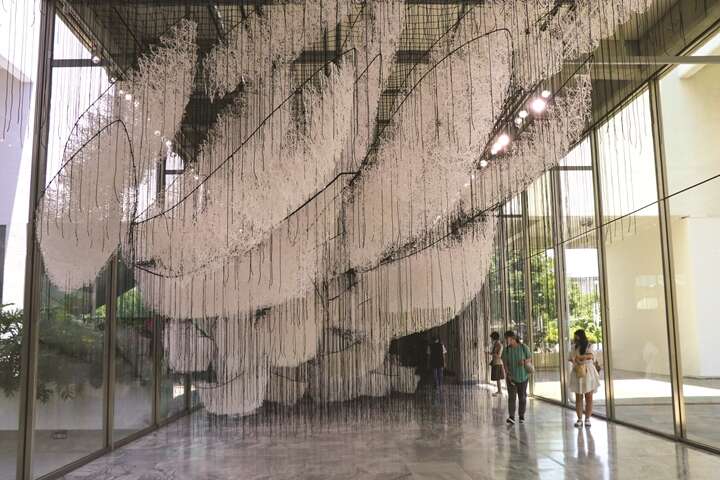
ONLINE VIRTUAL PLATFORMS
THE NPM ONLINE EXPERIENCE
WEBSITE 720 VR | tech2.npm.edu.tw/720vr/enHome.html
WEBSITE 3D Gallery | theme.npm.edu.tw/3d/Index.aspx?l=2
TINA KENG GALLERY
WEBSITE tinakenggallery.com/en/
TAIPEI FINE ARTS MUSEUM
WEBSITE tfam.museum/index.aspx?ddlLang=en-us
MUSEUM OF CONTEMPORARY ART TAIPEI
WEBSITE www.mocataipei.org.tw/en
Meditation
Scientific research has proven that meditation is effective in helping you clear your mind. In Taipei, there are a number of organized Chan and Zen Buddhist meditation opportunities suitable for foreign visitors and expatriates.
One is provided by Nung Chan Monastery (農禪寺) in Beitou District, easily accessible via the Taipei Metro, which has a large complex of visually dynamic aesthetics that is a tourist attraction on its own. Nung Chan Monastery offers special International Meditation Group classes for non-Chinese speakers. For attendees' convenience, these Weekly Meditation Practice sessions are held in a downtown business building by MRT Zhongxiao Dunhua Station (捷運忠孝敦化站). The sessions involve "eight-form moving meditation, sitting meditation, walking meditation and sharing," in which the participants can learn how to clear their minds and gain a moment free from disturbance.
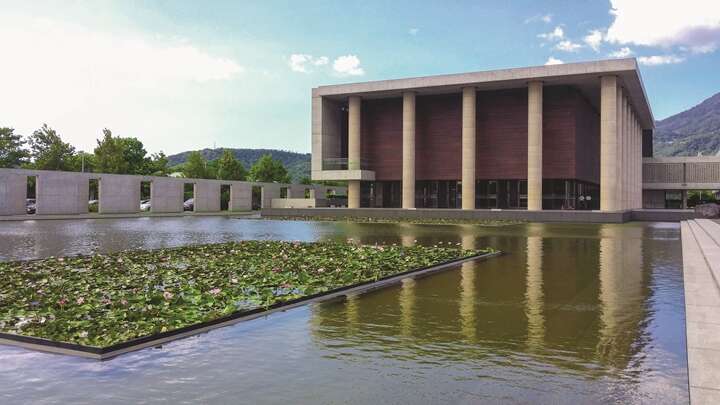
Offering a meditative experience of an entirely different sort is Taipei's internationally renowned performance art troupe U-Theatre (優人神鼓), which merges drumming meditation with Chinese martial arts and theatrical staging. Its Mountain Theater training and rehearsal base, home to Taiwan's only mountaintop amphitheater, overlooks Taipei Basin. It's located in Wenshan District, close to Taipei Metro's Maokong Gondola line. The troupe gives irregular shows for the public here (paid attendance). With the calming drumbeats reverberating across the mountain, the mesmerizing performances draw viewers deeply into the meditative experience. You can also sign up for their "Zen Drum Camp" (half-day, full-day) to learn about aesthetic drumming and sacred dance. The "One-Day Zen Activity," on the other hand, involves a series of meditation practices that lead pupils on a journey of self-exploration to learn the true meaning of "living in the moment."
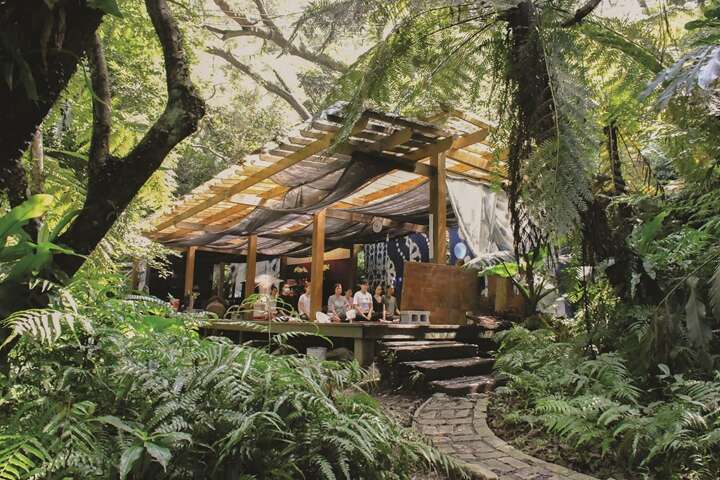
MEDITATION RETREATS
NUNG CHAN MONASTERY
WEBSITE dharmadrum.org/img/
U-THEATRE
WEBSITE utheatre.org.tw/u-intro/u-mount
COVID-19 ALERT
Please wear a mask and follow the epidemic prevention regulations imposed by the government when going out during the pandemic.
Gallery
Popular articles
 The First LGBTQIA+ Bookstore in the Chinese-Speaking World (TAIPEI Quarterly 2021 Autumn Vol.25)
The First LGBTQIA+ Bookstore in the Chinese-Speaking World (TAIPEI Quarterly 2021 Autumn Vol.25) Taipei's Got Rhythm: The City's Swing Culture (TAIPEI Quarterly 2021 Autumn Vol.25)
Taipei's Got Rhythm: The City's Swing Culture (TAIPEI Quarterly 2021 Autumn Vol.25) "Lang Lang Don't Cry" Pet Halfway House & Café: Finding Their Forever Home (TAIPEI Quarterly 2021 Autumn Vol.25)
"Lang Lang Don't Cry" Pet Halfway House & Café: Finding Their Forever Home (TAIPEI Quarterly 2021 Autumn Vol.25) A Farm-To-Table Revolution: Green Dining in Taipei (TAIPEI Quarterly 2021 Autumn Vol.25)
A Farm-To-Table Revolution: Green Dining in Taipei (TAIPEI Quarterly 2021 Autumn Vol.25) Taipei: City of a Hundred Grains (TAIPEI Quarterly 2021 Autumn Vol.25)
Taipei: City of a Hundred Grains (TAIPEI Quarterly 2021 Autumn Vol.25) A Sip of Spirits: Taipei Bar Culture and Bartending (TAIPEI Quarterly 2021 Autumn Vol.25)
A Sip of Spirits: Taipei Bar Culture and Bartending (TAIPEI Quarterly 2021 Autumn Vol.25)
 Soothing Body and Mind: Maximize Your Taipei Autumn Chillin' (TAIPEI Quarterly 2021 Autumn Vol.25)
Soothing Body and Mind: Maximize Your Taipei Autumn Chillin' (TAIPEI Quarterly 2021 Autumn Vol.25)